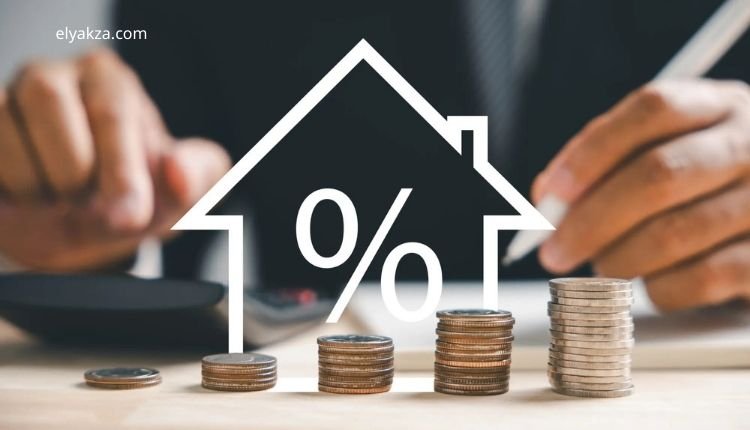Securing the right homeowners insurance is a critical step in protecting your most valuable asset. However, navigating the complex world of insurance policies and quotes can often feel overwhelming, with many homeowners wondering if they’re truly getting the best deal.
قائمة المحتويات
The good news is that finding affordable and comprehensive coverage doesn’t have to be a daunting task. With the right approach and the help of modern tools, you can easily compare options and uncover significant savings.
This comprehensive guide will walk you through the essential steps to finding the best cheap homeowners insurance, directly addressing the hyper-local nature of policies, detailing how online quoting tools simplify the process, and explaining the key factors that influence your premiums. By the end, you’ll be equipped with the knowledge to make an informed decision and secure peace of mind for your home.
Understanding the Hyper-Local Nature of Homeowners Insurance
One of the most crucial insights when shopping for homeowners insurance is its intensely hyper-local nature. Unlike some other financial products, homeowners insurance rates and available policies can vary dramatically from one zip code to another, or even between adjacent neighborhoods.
What might be an excellent policy in one area could be unavailable or prohibitively expensive just a few miles away.
Why Location Matters So Much
Insurance companies assess risk based on a multitude of factors, many of which are geographically specific:
- Natural Disaster Risk: Areas prone to hurricanes, floods, earthquakes, wildfires, or tornadoes will naturally have higher premiums to account for the increased likelihood of claims. A coastal property in Florida, for instance, will have very different insurance considerations than an inland home in a region with minimal natural disaster threats.
- Crime Rates: Neighborhoods with higher property crime rates (e.g., burglaries) may see slightly elevated insurance costs.
- Proximity to Fire Services: Homes closer to fire stations and hydrants often benefit from lower premiums because they are considered less risky by insurers.
- Local Building Costs: The cost to rebuild a home varies significantly by region. Areas with higher labor and material costs will typically have higher insurance replacement value estimates.
- Specific State Regulations: Each state has its own insurance laws and regulations, which can influence policy offerings and pricing.
Because of these localized factors, generic ads or national average figures often provide little practical value. Your search for the best cheap homeowners insurance must begin with your specific location.
“Read Also: التأمين الصحي للمتقاعدين مبكراً“
Leveraging Online Quoting Tools for Personalized Rates
Given the hyper-local variability, how do you efficiently find the best options for your specific area? The answer lies in utilizing online quoting tools. These platforms are designed to cut through the noise and deliver personalized quotes from multiple carriers based on your unique circumstances.

Why a Quoting Tool Is Your Best Friend
- Efficiency: Instead of contacting multiple insurance companies individually, a single online tool can gather information once and present various quotes in minutes.
- Comparison Made Easy: These tools allow for side-by-side comparison of policies, helping you quickly identify the best value and coverage for your needs.
- Access to Local Providers: Many tools partner with a wide range of insurers, including smaller, regional companies that might offer more competitive rates in your specific area.
- Tailored Recommendations: By inputting your personal and property details, the tool can match you with providers whose policies best fit your profile and risk assessment.
For those looking to streamline their search, a powerful tool like the one found at brennavvelvki.com/home-insurance (done in partnership with Money.com) allows you to enter your zip code and answer a few simple questions to connect with local providers tailored to your needs.
“Read Also: Life Insurance Over 65“
A Step-by-Step Walkthrough: What to Expect from the Quoting Process
To illustrate how these tools work, let’s walk through a typical questionnaire process. Understanding the types of questions asked will help you prepare the necessary information and appreciate why certain details are crucial to your quote.
1. Your Property’s Profile: Type and Age
- What Type of Property Do You Live In?
- Single-Family Home: Generally standard, with rates reflecting typical risk.
- Multi-Family Home: May involve different coverage needs, especially if you rent out units.
- Townhouse/Condo: Often covered by a master policy for the building exterior, with your individual policy covering the interior and your belongings.
- Mobile Home: Can sometimes be more challenging or expensive to insure due to their vulnerability to severe weather and specific construction.
- When Was Your Home Built?
- Brand New vs. Over 40 Years Old: The age of your home is a significant factor. Older homes may have outdated plumbing, electrical systems, or roofing, which could pose higher risks (e.g., burst pipes, electrical fires) and lead to higher premiums. Newer homes, especially those built to modern codes, often qualify for lower rates.
Impact: Different property types and ages present varying levels of risk and require distinct coverage structures, influencing your premium.
2. Personal and Household Details
- How Many Bedrooms Are in Your Home?
While not directly impacting risk, the number of bedrooms is an indirect indicator of home size and potential replacement cost. - What Is Your Age Range?
30 or Younger / 30-50 / 51-65 / Over 65: Age can sometimes be a factor, with older, more established homeowners occasionally receiving more favorable rates due to perceived stability. - What Is Your Approximate Household Income?
Under 50K / 50-99K / 100-199K / 200K or More: Income level can sometimes correlate with financial stability and the ability to maintain a property, which insurers may consider. - Do You Know Your Credit Score?
Excellent (800-850) / Very Good / Good / Fair / Poor: In many states, insurance companies use credit-based insurance scores as a predictive tool for the likelihood of filing claims. A higher credit score often translates to lower premiums. - How Many Cars Does Your Household Own?
This question is often asked to identify potential bundling opportunities for home and auto insurance, which can lead to discounts. - Has Anyone in Your Household Served in the US Military?
Excluding Dishonorable Discharge: Some insurance companies offer specific discounts to active military personnel or veterans as a token of appreciation for their service.
Impact: A strong credit score and financial responsibility signal lower risk to insurers.
3. Reviewing Your Results and Next Steps
Once you’ve completed the questionnaire, the tool will analyze your inputs and match you with suitable insurance companies and their estimated quotes.
- Online Marketplaces vs. Direct Carriers: Some results will be online marketplaces (like Policy Genius) that allow you to compare multiple quotes. Others might be direct insurance carriers or brokers.
- Comparing Quotes: Carefully review the coverage details, deductibles, and premiums offered by each company. Don’t just pick the cheapest option; ensure the policy provides adequate protection for your specific needs.
- Finalizing Your Policy: Once you select a preferred option, the tool will often direct you to the chosen provider’s website to finalize your quote and purchase your policy. You may need to re-enter some information directly with the insurer to get the most accurate and binding quote.
Remember, the information you provide is critical. Be honest and accurate to ensure you receive the most realistic and appropriate quotes.
“Read Also: Best Cheap Car Insurance Quotes“
Smart Strategies to Save More on Homeowners Insurance
Beyond using quoting tools, several other strategies can help you further reduce your homeowners insurance premiums without compromising on essential coverage.

1. Bundle Your Policies
Many insurance companies offer discounts when you bundle multiple policies, such as home and auto insurance. This can be one of the simplest and most effective ways to save money, often resulting in a significant percentage off your total premiums.
2. Increase Your Deductible
The deductible is the amount you pay out-of-pocket before your insurance coverage kicks in. Choosing a higher deductible typically results in lower monthly or annual premiums. Just ensure you can comfortably afford to pay the higher deductible if you need to file a claim.
3. Improve Your Home’s Security and Safety
- Security Systems: Installing a monitored home security system, smoke detectors, and carbon monoxide detectors can qualify you for discounts.
- Impact-Resistant Roofs/Windows: If you live in an area prone to severe weather, investing in storm-resistant features can reduce your risk and lower your premiums.
- Sprinkler Systems: Fire suppression systems can also lead to discounts.
4. Maintain a Good Credit Score
As noted earlier, your credit-based insurance score can significantly impact your premiums. Regularly check your credit report for errors and work on improving your score if needed.
5. Shop Around Regularly
Insurance rates change, and so do your personal circumstances. It’s a good practice to re-shop for homeowners insurance every year or two, or whenever you experience a significant life event (e.g., home renovation, marriage, new baby). This ensures you’re always getting the most competitive rates available.
6. Inquire About All Available Discounts
Don’t hesitate to ask your insurance agent about any available discounts you might qualify for. These could include:
- Loyalty discounts: For long-term customers.
- Claims-free discounts: For not filing claims over a certain period.
- New home discounts: For newly constructed homes.
- Senior discounts: For older homeowners.
- Non-smoker discounts: If no one in the household smokes.
“Read Also: Slash Your Car Insurance Costs“
Conclusion: Your Path to Affordable Home Protection
Finding cheap homeowners insurance doesn’t mean settling for subpar coverage. By understanding the hyper-local dynamics of insurance, strategically using online quoting tools, and implementing smart saving strategies, you can confidently secure the best policy for your home and budget.
Remember to gather all necessary information – from your zip code and property details to your personal financial profile – before you begin. This preparation will ensure a smooth and efficient quoting process, leading you to competitive offers from top-rated insurers.
Don’t delay in protecting your home and finances. Take the first step today by exploring your personalized quotes. Visit brennavvelvki.com/home-insurance to start comparing options and discover how much you can save on your homeowners insurance. With a little effort and the right resources, peace of mind is just a few clicks away.
Michael Sam is a dedicated writer in the field of insurance, providing clear, informative, and actionable content for individuals and businesses alike. His articles cover a wide range of insurance types including health, auto, property, life, and business insurance.
He focuses on breaking down the often confusing terminology of insurance policies, helping readers understand their coverage options, benefits, and limitations. Michael also provides comparisons, expert insights, and tips on choosing the right insurance plans that align with readers’ financial goals.
With a commitment to financial literacy, Michael Sam emphasizes the role of insurance in protecting individuals, families, and businesses from unexpected risks. His writings serve as a guide for making smarter, more secure financial decisions.

